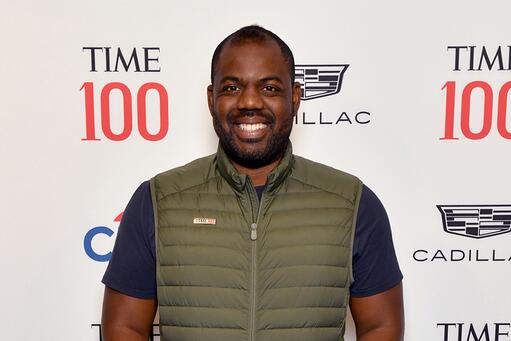Donnel Baird ’13

THE HOME ENERGY-SAVER
IN SEPTEMBER 2021, Donnel Baird testified before Congress during a hearing on the economic benefits of electrifying America’s homes and buildings. During his testimony, Baird presented his own climate-tech company, BlocPower, as an illustration of the economic value waiting to be unlocked by making homes and buildings healthier, safer, and less environmentally impactful.
“The business case for BlocPower is simple,” he said during the hearing. His company replaces antiquated fossil fuel energy systems in old buildings with all-electric technology, like heat pumps, thereby focusing on the third-highest source of carbon emissions in the United States: residential buildings. “BlocPower makes money because this technology saves so much in energy and other costs that with the right transaction and incentive structure, BlocPower is able to turn a profit and leave households spending less on energy than before,” he explained.
Indeed, BlocPower has ably demonstrated its economic case in the near-decade since Baird founded the company while a student at CBS in 2014. BlocPower has raised over $100 million in debt and equity financing from investors including Microsoft, Goldman Sachs, Apple, Andreessen Horowitz, and others. In a recent conversation on the Tamer Center’s Capital for Good podcast, Baird said he believes that BlocPower’s strong commercial viability will be the engine that drives it to scale.
At the same time, Baird is eager to partner with governments and push for the right policies to achieve the extensive scale he envisions for BlocPower. In fact, he’s come to believe that government and business must work together to address a crisis as massive as climate change — neither the public nor private sector can do it alone.
“I’m a Black American,” he said in the Capital for Good interview. “We know that the power of the federal government to implement just policies is critical to the survival, empowerment, and wealth building of Black Americans.”
Before attending CBS, Baird served as a political organizer and worked with President Obama’s first campaign. He believes that governments have access to unique levers for change. At the same time, he added, so do businesses in the private sector.
“It is necessary, when fighting the climate crisis, to have robust policy intervention, but it won’t be sufficient,” Baird said. “We have to have the private sector step up.” He added that $4.5 trillion will be required to pay for the labor and equipment necessary to decarbonize buildings across America.
Such a massive undertaking also creates new employment opportunities. In New York City, BlocPower has partnered with the city government to train and hire over 1,700 clean-energy workers from several low-income, high-crime neighborhoods to date.
In a step toward ramping up and approaching the massive scale of the problem, BlocPower is now working on decarbonizing buildings in whole cities at a time. The company is working with the government of Ithaca, New York, to decarbonize its 6,000 buildings and help the city reach its ambitious goal of 100 percent decarbonization by 2030. Baird said his company is now in talks with other cities inspired to follow Ithaca’s lead.
“Our view is that if you can move a building completely off of fossil fuels, then you can do all of the buildings on a city block,” Baird said. “And if you can decarbonize all of the buildings on one city block, then, theoretically, you can decarbonize all the buildings in a city.”